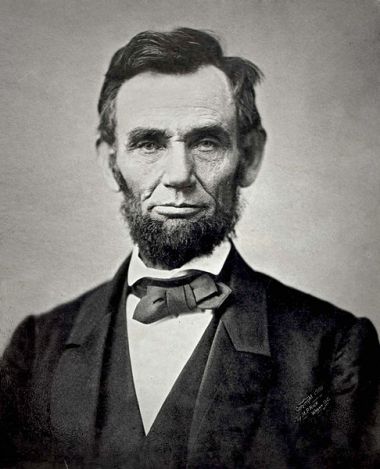The surprising Christian faith of Abraham Lincoln and Thomas Jefferson

According to the US constitution, there is no religious requirement for someone taking a position in public office – though if you've paid any attention in the run-up to the 2016 election so far you might be surprised by this. Every single one of the candidates, barring left-wing socialist Bernie Sanders who has approached the race in his characteristically unique way, has professed some kind of faith. And not just any faith, either; Christian faith.
One by one, each of the prospective future presidents has played up their Methodist (Clinton), Baptist (Huckabee), or Presbyterian (Trump) roots. They've campaigned hard for the so-called 'evangelical vote'; courting key Christian leaders like Jerry Fallwell Jr and Rick Warren. "I really appreciate the support given to me by the evangelicals," Trump effused in a recent video, brandishing a Bible and apparently seeing how many times he could fit the word 'evangelical' into a 30-second clip.
"I want to thank the evangelicals. I will never let you down."
But while a rhetoric of persecution has emerged from the Republican movement, and Christians bemoan that the US is slipping away from its Christian roots, it seems to have escaped many across the pond that their country wasn't actually built on Christian principles at all.
In fact, the constitution expressly states that "no religious test shall ever be required as a qualification to any office or public trust under the United States". Thomas Jefferson famously referred to the First Amendment as erecting a "wall of separation between Church and State". The founding fathers were clear on one thing: America is a secular nation.
That's not to say that those who have taken the presidency haven't had a faith; in fact, almost every single one has been a Christian. A recent Pew Research study showed that of the 44 men to have taken office so far, nearly half have been Episcopalian or Presbyterian, with Baptists and Methodists coming in third and fourth place. Current president Barack Obama joins Hayes and Andrew Johnson in defining himself simply as "Christian", while Nixon and Hoover were Quakers and Kennedy a Catholic.
But two names stand out from the rest, as having "no formal affiliation" with any Christian Church: Thomas Jefferson and Abraham Lincoln.

Thomas Jefferson (in office 1801-09)
One of America's Founding Fathers, Jefferson expressed unorthodox religious views. Raised in the Church of England in Virginia, he later abandoned traditional Christian teaching and was accused of secretly being a Muslim by his opponents (something Obama has made references to a number of times, having himself faced similar accusations over the past eight years).
While he praised the teachings of Jesus, Jefferson denied Christ's divinity and the resurrection, and even compiled The Life and Morals of Jesus of Nazareth, a version of the New Testament that omitted Jesus' miracles. Often identified as a deist, Jefferson did believe in a God that created the universe, but that he was impersonal, though benevolent.
He was a strong advocate of religious liberty, and before his presidency in 1777 he drafted the Virginia Statute for Religious freedom that stated citizens "shall be free to profess...their opinions in matters of religion".
Abraham Lincoln (in office 1861-65)
Widely considered to be one of America's greatest presidents, and named by Obama as one of his own favourites, Lincoln never actually joined a church – which would seemingly disqualify him in the eyes of many voters today. Though raised in a devoutly Baptist household, Lincoln was a sceptic as a young man and his actual religious beliefs, which developed throughout his lifetime, remain a subject of contentious debate. He's been labelled a deist, an atheist and a universalist, and in 1834 he allegedly wrote a book challenging the principles of orthodox Christianity. "Lincoln often, if not wholly, was an atheist," James H Mahaney, a close political associate, said. "Lincoln was enthusiastic in his infidelity."
However, religion no doubt shaped Lincoln's politics. He had a deep appreciation for the Bible and often quoted from Scripture. Addressing the schism emerging between the North and South in his first inaugural address in 1861, he said: "Intelligence, patriotism, Christianity, and a firm reliance on Him, who has never yet forsaken this favoured land, are still competent to adjust, in the best way, all our present difficulty."
His second inaugural address, delivered a month before his assassination, is considered one of the most overtly religious in American history. Mentioning God 14 times, it discussed the concept of divine providence and God's hand in the Civil War. Though both secularists and Christians have tried to claim Lincoln as their own, however, it's possible to argue he didn't fit neatly into either camp. Biographer Ron White says of Lincoln's final address: "He was theological but not religious".
In the light of what seems to be the current obsession with candidates' religious views, it's fascinating to look back and see that two of America's greatest presidents weren't conventional Christians at all. Christians today might hope for someone who shares their faith in the White House, but it can hardly be healthy when they're so concerned about this that neither Jefferson nor Lincoln would stand much chance of being elected today.











